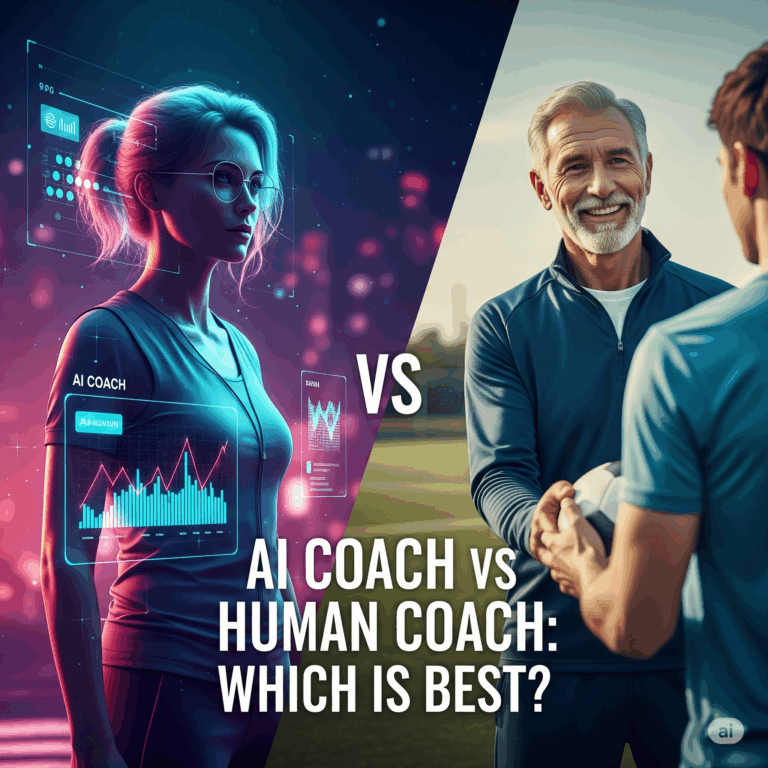Can AI Replace Your Coach? A Deep Dive into Human vs. Artificial Intelligence
In today’s rapidly evolving world, artificial intelligence (AI) is increasingly integrated into every aspect of our lives, from optimizing workflows to streamlining daily tasks. As a leadership and business coach, I’ve found myself wondering about the role AI plays in my field. Specifically, can an AI chatbot truly replace a human coach?
I recently posed this very question to an AI chatbot, and the answer, though nuanced, was clear: not really. While AI is an incredible tool, its intelligence is fundamentally different and, in some key areas, still limited compared to human intelligence.
The Three Intelligences: Where Humans Excel
AI, particularly large language models and chatbots, excels at providing rapid information, deep search capabilities, and assisting with research and problem-solving. It can offer diverse solutions and data points. However, what AI lacks is the complete intelligence that humans possess. We operate with three distinct types of intelligence, all working in concert:
- Intellectual or Logical Intelligence: This is our ability to think, reason, and solve problems using logic. AI largely mimics and amplifies this.
- Emotional Intelligence: This involves understanding and managing our own emotions, as well as recognizing and influencing the emotions of others. This is crucial for empathy, building rapport, and navigating complex human interactions – areas where AI falls short.
- Instinctive Intelligence: Often overlooked, this is our innate, intuitive wisdom. It’s the “gut feeling” or the subconscious knowing that guides us, often without logical explanation.
An AI chatbot, while incredibly advanced, is still a machine. It can process vast amounts of data and learn patterns, but it cannot genuinely experience emotions or possess true instinct. These latter two intelligences are profoundly integrated into who we are as humans, driving our growth and enabling us to reach our full potential in a balanced way.
The Power of Instinct: A Crow’s Wisdom
To illustrate the power of instinctive intelligence, consider a fascinating example from nature. I recently saw a social media post showing a crow sitting on an anthill. Why would a crow do this? Instinctively, the crow knew that the ants emit a certain chemical that eliminates bacteria, helping to cure its illness. This isn’t a logical decision; it’s pure, unadulterated instinct at play, offering a “magical” solution that nature provides.
Humans possess this same powerful instinctive intelligence, yet we often don’t acknowledge it, use it enough, or even know how to leverage it.
Integrating Intelligences for Growth
I learned a profound approach to understanding and utilizing these three intelligences from my late mentor and business partner, Fritz Glaus. Fritz, through his book “Crazy Zoo – Know-Thyself Made Easy,” developed training programs that integrated this concept. His book, a fable about zoo animals and a zookeeper who collaborate to create a free, open zoo, beautifully illustrates how understanding these intelligences can foster better teamwork and problem-solving in any group or organization.
Within the book, Fritz guides readers through a process to identify their dominant intelligence – whether it’s intellectual, emotional, or instinctive. This isn’t done through a simple questionnaire but through an interactive exercise, similar to what we do in our leadership and team development workshops. Learning your dominant type and understanding how all three intelligences work within you is a game-changer for personal and professional development.
Unleash Your Full Potential
While AI will undoubtedly continue to be an invaluable assistant in our work and lives, it cannot replace the nuanced, empathetic, and instinctively guided support that a human coach provides. A coach can help you explore and balance your intellectual, emotional, and instinctive intelligences, unlocking more of your inherent potential.
I encourage you to explore this concept further. Understanding and leveraging your three intelligences can dramatically enhance your problem-solving abilities, improve your relationships, and lead to more effective leadership.
